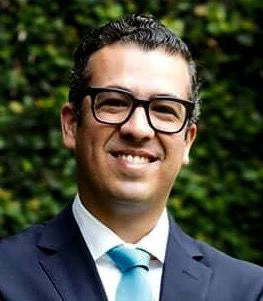 Dissemination campaign, One Stop Shop for the EQG Government. Credit: Ventanilla Única Empresarial, VUE, EQG.
Dissemination campaign, One Stop Shop for the EQG Government. Credit: Ventanilla Única Empresarial, VUE, EQG.
Equatorial Guinea, once a rapidly growing economy and significant player in sub-Saharan Africa's oil industry, has faced challenges due to declining oil revenues, limited economic diversification, and an underdeveloped private sector. To address these issues, the government, in collaboration with the World Bank Group, embarked on a comprehensive reform journey aimed at enhancing its investment climate, revitalizing the business environment, and attracting both domestic and foreign investment. Diversifying away from an oil-dependent growth model became essential for improving economic indicators and attracting investments.
Addressing Legal Uncertainty
A major hurdle in improving the investment climate is the high level of legal uncertainty. Equatorial Guinea lags behind the regional average in critical international indicators such as government efficiency, quality of regulations, and the rule of law. This uncertainty increases risks for investors and discourages foreign investment. Moreover, Equatorial Guinea's membership in the Organization for the Harmonization of Business Law in Africa (OHADA) adds complexity as all its laws are in English and/or French, creating a language barrier that exacerbates legal uncertainty for the private sector.
Business environment Reform agenda
In 2019, the government launched a plan to improve the business climate. A comprehensive roadmap was developed, along with an action plan and the creation of an inter-ministerial national committee responsible for driving an ambitious business environment reform program, presided over by the Prime Minister. The primary objectives were to facilitate business entry, increase transparency of information, and attract domestic and foreign investors. Through the reform program, the Equatorial Guinea government simplified the process of starting a business by establishing a one-stop shop and reducing the minimum capital requirement by 90%. These initiatives enabled approximately 4,000 entrepreneurs to register their businesses from 2019 to 2023, marking a significant milestone in fostering entrepreneurship and economic growth.
The services sector has emerged as a frontrunner, attracting the majority of newly registered businesses. An encouraging trend is the increasing involvement of women in entrepreneurship, with 36% of the total registered companies being created by female entrepreneurs. This underscores the importance of empowering women in the business landscape, contributing to diversity and inclusivity in the entrepreneurial ecosystem.
In line with the government's commitment to transparency, the Ministry of Finance has made all relevant information for registering and running a business in Equatorial Guinea available on its website. This initiative provides a comprehensive resource for entrepreneurs, detailing the required procedures, documents, and associated fees.
Positive Impact and Future Directions
These reforms have positively impacted the business climate and are aiding the nation’s recovery from the economic challenges resulting from the oil crisis, exacerbated by the pandemic. While challenges persist, these results demonstrate the government’s commitment to fostering entrepreneurship and improving the business climate. The design and enforcement of business regulation can either foster or hinder economic activity. The quantity, quality, and efficiency of institutions implementing regulations and providing services to businesses are critical in shaping an economy’s enabling environment. Streamlined, simplified and transparent regulations can ease business activity, spur entrepreneurship and influence investors’ behaviors to enter or remain in a market.
The National Roadmap for the Improvement of the Business Environment and Competitiveness outlines several critical initiatives that require prioritization to sustain progress in the reform efforts. Establishing an Investment Promotion Agency (IPA), and translating OHADA laws into Spanish, alongside initiating the codification process for a New Civil Code, Notary Law and Building Code, are pivotal steps toward ensuring heightened legal certainty. These legal reforms can significantly reshape the country’s legal framework for business activities, addressing the recurrent issue of unpredictability hindering private sector growth.
Additionally, reducing the minimum share capital for limited liabilities companies from 100,000 XAF to 5,000 XAF is poised to further foster entrepreneurship and enhance Equatorial Guinea’s competitiveness relative to its neighbor countries. The digitalization of the Property Registry, further development of e-government services, and integration of post-registration processes with the Ministry of Labor and the National Social Security Institute (INSESO) through the One-Stop Shop for Business Creation (VUE) represent crucial milestones. These efforts will effectively revive previously stagnant activities. Equatorial Guinea’s accession to the International Centre for Settlement of Investment Disputes (ICSID) and the World Trade Organization (WTO) underscores its dedication to global economic integration and development, signaling a proactive stance toward participating in the international economic landscape.
Comprehensive Approach to Sustainable Development
While the investment climate plays a significant role in fostering private sector development, it is just one piece of the puzzle. Its effectiveness hinges on several other factors. Beyond the investment climate, macroeconomic stability, financial resilience, and inclusive access to finance are equally crucial. Recognizing these considerations is important for fostering a conducive environment that propels private sector growth and longer-term sustainable development.




Join the Conversation